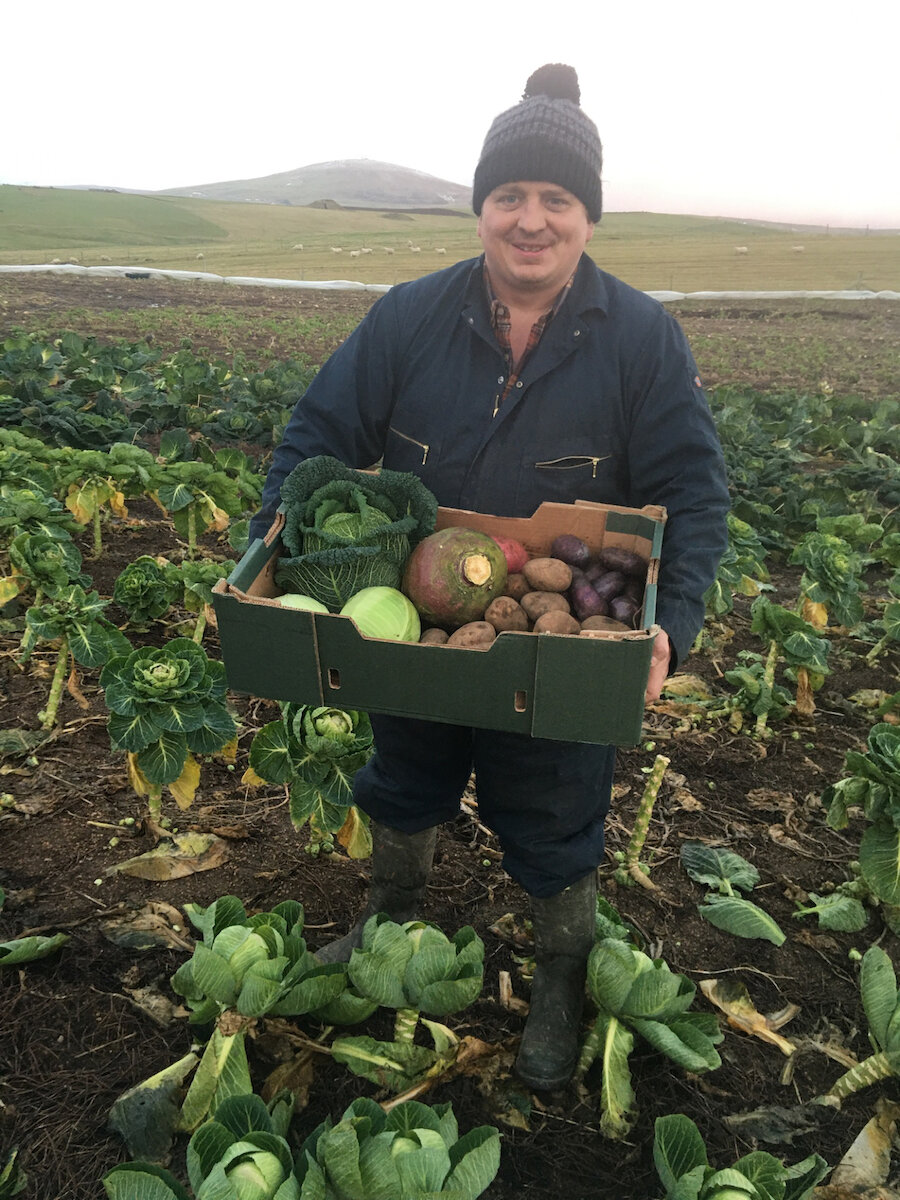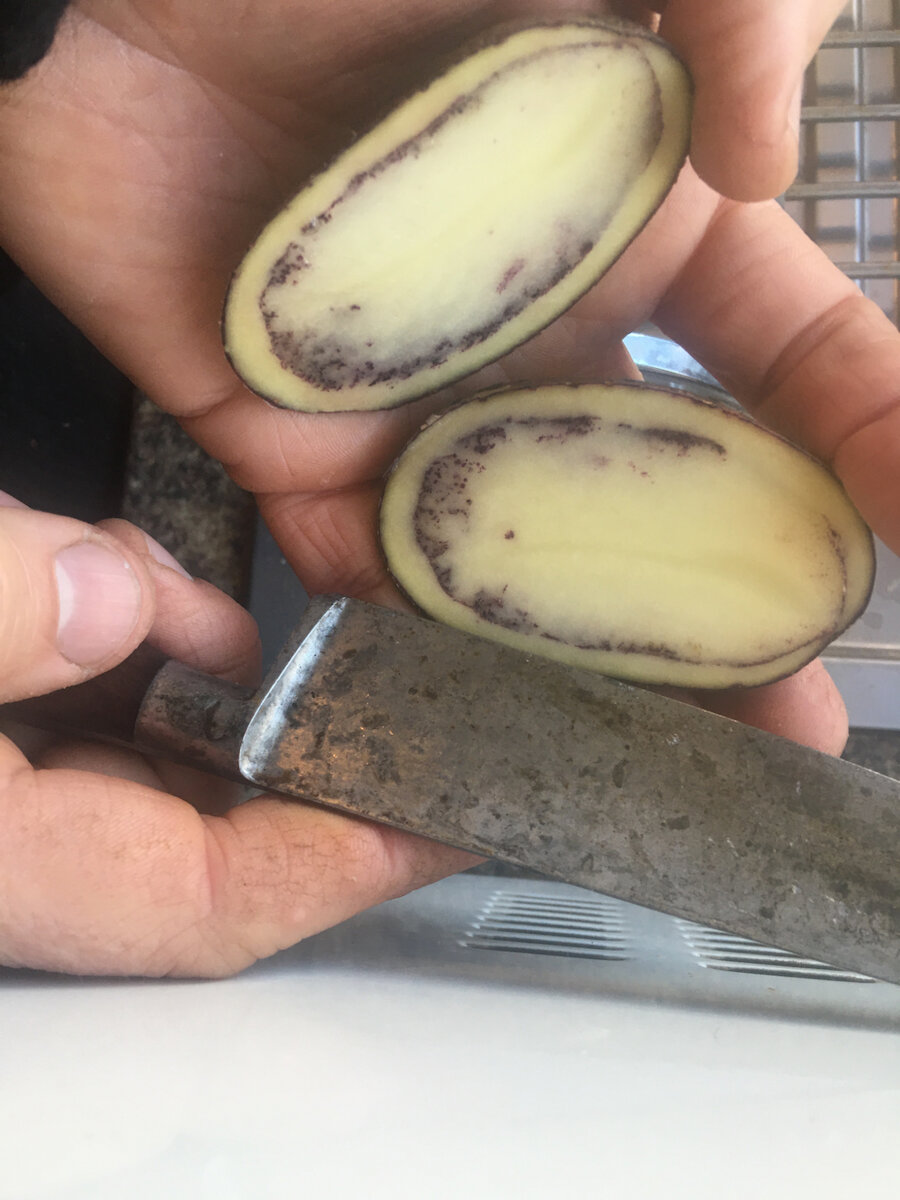Last week I visited JK Mainland Farm at Brake, a few miles from where we live in the south mainland of Shetland. Until one month ago we lived in London where I was involved for 10 years setting up and running community vegetable gardens on our council estate in Dalston, so I am eager to learn about food growing in Shetland, albeit at a larger scale and in a different climate.
As a paediatrician, I have a professional interest in food. Good nutrition is the foundation of child heath – working in South Africa and London I have witnessed the long term detrimental effects that malnutrition has on people’s lives. Food is a basic human need and it’s vital that we protect our systems of food production and supply. In recent years, with the advent of foodbanks and recent scandals over free school meals and food boxes, it is clear that even in Britain, these systems are beginning to crumble.
The landscape in Shetland is windswept with little shelter – as a first time visitor it would be hard to imagine anything growing here at all except for grass. In fact, food does grow well in Shetland, despite the high winds and salt spray from the sea. In 1861 over 31,000 people lived here and all of the calories that sustained the population then were either grown from the land or caught from the sea. In contrast, the calories that sustain today’s population of 23,000 mainly come via the supermarkets and wholesalers in Lerwick: perhaps cheaper financially - but at the environmental cost of plastic packaging, shipping, road transport, soil degradation and an uncertain and unsustainable future.
A few days prior to Christmas in 2012, after just two days of cancelled ferries due to high winds, Shetland’s supermarket shelves were emptying. In response, Tesco chartered a C130 Hercules transporter plane to make emergency deliveries of food before Christmas. What was seen as a sign of strength by many was in fact an act of desperation to cover up a weak food supply system, exposed by Shetland’s remote geographical location.

